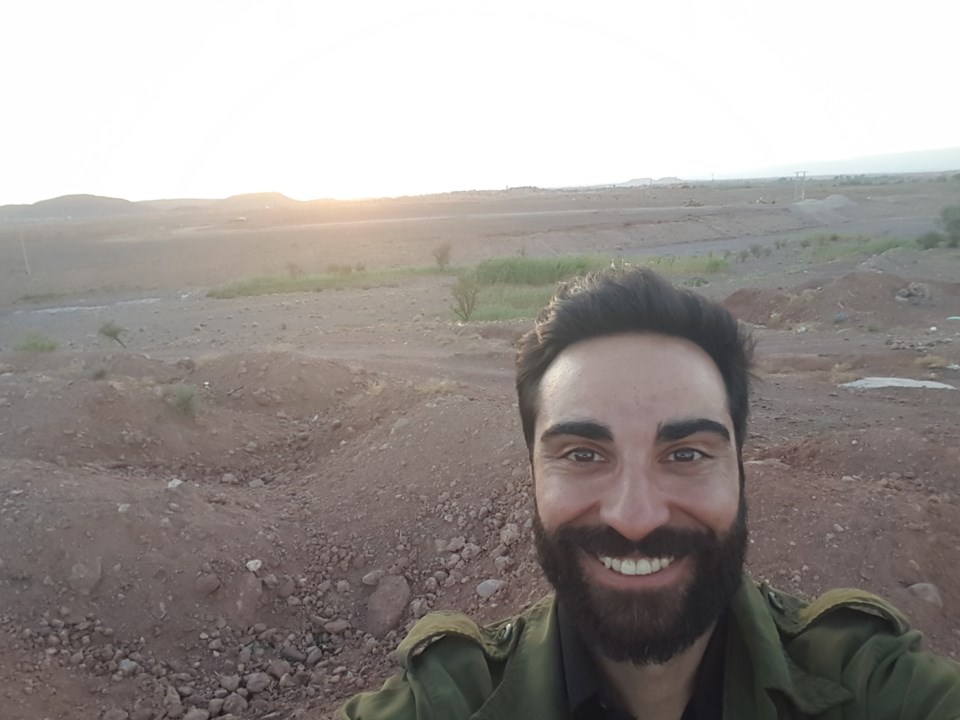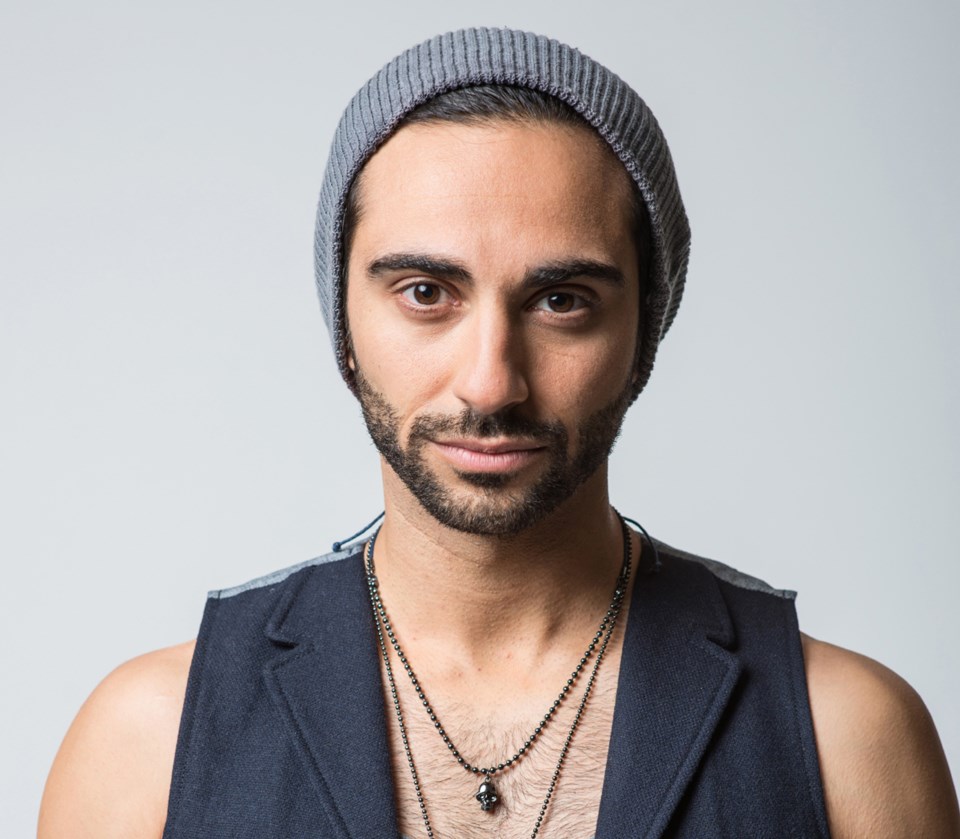��
Before Lee Majdoub would accept a role on Fox’s Prison Break: Sequel, he had to talk it over with his family.
The event series was poised to be huge from the word go. It marked the return of the juggernaut Prison Break, which ran on Fox from 2005 to 2009 and centered on a wrongfully convicted man (Dominic Purcell) and his brother (Wentworth Miller) in the aftermath of their escape from Death Row. The original series was wildly popular, and a role on the nine-episode Prison Break: Sequel – which ultimately premiered on April 4 to solid ratings – would be a huge score for a �鶹��ýӳ��actor like Majdoub.
The miniseries is set in Yemen. Majdoub had auditioned for several characters, but he was surprised when word came down that he’d been offered a recurring role for which he hadn’t auditioned: that of Yasser, an ISIS lieutenant. He hadn’t auditioned to play any terrorists.
At first, Majdoub didn’t know whether he should accept the role. “I didn’t want to come off as supporting that stereotype, that Middle Eastern people are all terrorists – which the story itself wasn’t saying,” says Majdoub.
But Majdoub’s family and friends encouraged him to take the role, and he’s glad he did, for numerous reasons: he got to film in Morocco, he got to converse with Miller (“I really admired his Facebook post about dealing with depression and overeating, and we spoke about it”), and he got to inhabit a flawed character who was more than a one-note caricature.
“They gave me opportunities to give Yasser dimension,” says Majdoub. Yasser “didn’t have anything to live for, and here comes a group like ISIS, which is basically a huge, worldwide gang that’s offering him money, shelter, food, and a reason to live. To Yasser, that sounds really attractive, and then he just really wants to excel at the job that he’s given to prove his place and feel like he belongs. That sense of belonging that a lot of people look for, he finds in that group.”
Majdoub was born in Lebanon, living in Italy and Switzerland before moving to Canada (first Ottawa, then Montreal) when he was nine years old, finally settling in �鶹��ýӳ��in 2007. He was performing long before he’d articulated the idea that he wanted to be an actor. He was the hyperactive kid who’d ham it up whenever his dad brought out the camcorder. “I watch family videos now, and I get embarrassed because I was always ruining a shot,” he says, chuckling. “I was always a performer.”

��
He pursued a degree in mechanical engineering even though he didn’t enjoy it (“It was kind of one of those things where the parents are like, ‘Go pursue something in the sciences, because then life might be simpler’”), and found his bliss in an L.A. acting school, at age 20, after winning a free class in a contest. “[That class] was the first time I was happy in a really long time,” he recalls. “There was no judgment. It definitely felt like, whatever I needed to do in order to continue to do this, I wanted to do.”
Early on in Majdoub’s career, the main challenge was taming a negative inner voice. “I put a lot of pressure on myself,” he says. “I don’t think I really enjoyed a lot of the early bookings that I had. I don’t think I enjoyed the process. It was all about, ‘I have to make it or I’m not good enough,’ and what would that mean?”
But heart-to-hearts with acting friends (including Aleks Paunovic, Richard Harmon, Michael Eklund and Patrick Sabongui) have anchored him, as has self-care. “I started to work a lot on myself spiritually, mentally and physically, and was able to start to look at the industry differently, and be more patient and settle in, rather than try to strangle it and mold it into what I thought it should be.”
Majdoub’s ever-growing filmography includes plum roles on Supernatural, Arrow, Zoo, and Lisa Ovies’s upcoming horror flick, Puppet Killer, which also stars Paunovic, Harmon, Lisa Durupt and Kyle Cassie, and follows an adorable puppet named Simon as he embarks on a murder spree.��
In February, Majdoub filmed a starring role in Kyra Zagorsky’s The Prince. The short was created as part of the Crazy 8s film competition and premiered at a sold-out gala at the Centre for the Performing Arts. In it, Majdoub portrays Amir, an actor of Middle Eastern ancestry who struggles with the decision to accept an offensive terrorist role in a blockbuster film. Majdoub hasn’t been in Amir’s shoes too often, largely because of the decision that he and his agent, Deb Dillistone, made early in his career. “I’ve been fortunate enough not to go out for many stereotypical roles for Middle Eastern actors, and I think it’s because of a conversation that I had with Deb early on,” says Majdoub. “She told me, ‘We’re in it for the long game.’”
Prison Break��airs Tuesdays at 9pm on Fox.
��
Web exclusive: More from our interview with��Lee Majdoub
On lessons learned while filming Prison Break in Morocco
“In a sense, the trip to Morocco was about learning about Morocco, and the cherry on top was that I got to work there. I had a conversation with someone there that really opened my eyes in a different way. I was talking to him about charity, and I used the word ‘poor,’ and he was like, ‘We don’t use that word here.’ I was like, ‘What do you mean?’ And he said, ‘We don’t like to use the word poor, and the only time we use the word… is when we see someone that’s dressed in nice clothing begging for money. That’s someone that is poor. The rest of us work hard, so we don’t consider ourselves poor. It’s not about material possessions. We all go out to work hard to earn as much as we can, and we don’t deem that being poor.’ I was like, ‘Wow. Okay. I don’t think I’m going to use that word again.’ Those were the moments that I think I was really hoping to have there. It’s something I’ll never forget.”
On his first time on set
“It was a really, really low-budget passion-project thing from some guy I met via email. We had a couple of conversations, and I went in and auditioned. I didn’t really know what to expect from an audition and I don’t think I did very well, but then I got a one-line part in his short film, and I remember the lights being really hot. That was a good learning moment: Don’t layer up so much when you’re indoors. I was sweating. It was a mix of nerves and heat. I always thought I was better than I was back then. I thought I knew what to expect, and was always surprised.”
On support from his parents
“At the beginning of my career, [my parents] weren’t ecstatic about it. Now they’re some of the most supportive people in my life. It’s funny: Now I’ll run into a challenge on set, or I won’t know how to process what happened, or I might be a little bit too hard on myself, and I’ll call my dad [who isn’t in the film industry] up and I’ll say, Hey, this is what happened. How do you deal with something like that in your work, or Have you dealt with anything like that, where maybe you don’t perform the way that you thought you should? We’re able to have these very real conversations. My mom and I have always had a strong relationship. My dad and I, I think, have continually grown within our relationship, which I really appreciate.”
On advice he would give to his younger self
“I think I would tell myself, ‘You’re going to be okay. Breathe. Be patient. Learn as much about yourself as you can. Don’t make it about you.’”


